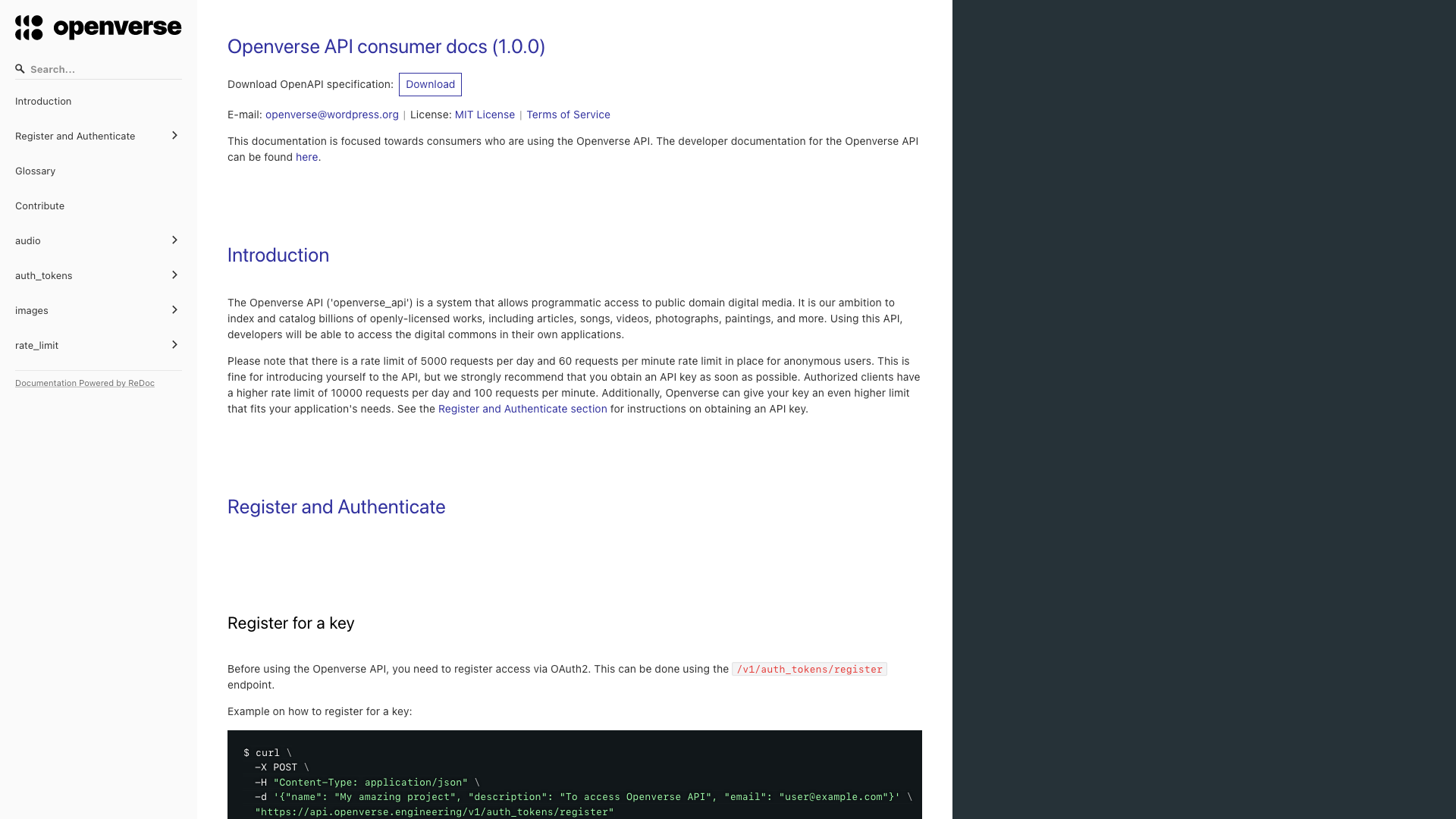Quickstart#
Prerequisites#
Ensure that you have installed mkcert (and the corresponding NSS tools). You
can run mkcert -install to verify your installation. coreutils adds GNU
utils to macOS. timeout from the package is required.
Note: Our Docker compose configuration requires specific environment configuration that is automatically handled by
just. While you can run compose directly, it’s advised to use thejust dcalias fordocker-composeas this ensures the environment will be properly configured.
Steps#
Ensure that the Docker daemon is running.
Clone the repository and
cdinto it. This is the monorepo root.git clone https://github.com/WordPress/openverse-api.git cd openverse-api/
Generate locally-trusted certificates. These will be used by the NGINX proxy to serve the API over
https.just certFrom the monorepo root, bring up the Docker Compose system. Docker Compose will automatically read the necessary environment variables from
env.dockerfiles from project directories.just upPoint your browser to
http://localhost:50280. You should be able to see the API documentation.
Load the sample data. This could take a couple of minutes.
just initMake an API request using cURL. You should receive a JSON response.
just statsPiping the response through a pretty-printer like
jqshould yield an output like the following.just stats | jq '.[0]'
{ "source_name": "flickr", "display_name": "Flickr", "source_url": "https://www.flickr.com", "logo_url": null, "media_count": 1000 }
When done, bring the system down. To remove all volumes as well, pass the
-vflag.just down just down -v # removes volumes
Use the
logscommand access the logs from all services. To isolate a service, pass the service name as an argument.just logs just logs web # only shows logs web service
Services#
The command just up spawns the following services:
PostgreSQL x 2 instances
upstream data source simulator
API application database
web (
api/)ingestion_server and indexer_worker (
ingestion_server/)
The last two are subprojects of this monorepo.
Troubleshooting#
If the Elasticsearch container fails to start on your machine, there’s a good
chance the container ran out of memory. Ensure that you have allocated enough
memory to Docker applications and re-run the just up command.
If the logs mention “insufficient max map count”, you may also need to increase
the number of open files allowed on your system. For most Linux machines, you
can fix this by adding the following line to /etc/sysctl.conf:
vm.max_map_count=262144
To make this setting take effect, update kernel state:
sudo sysctl -p